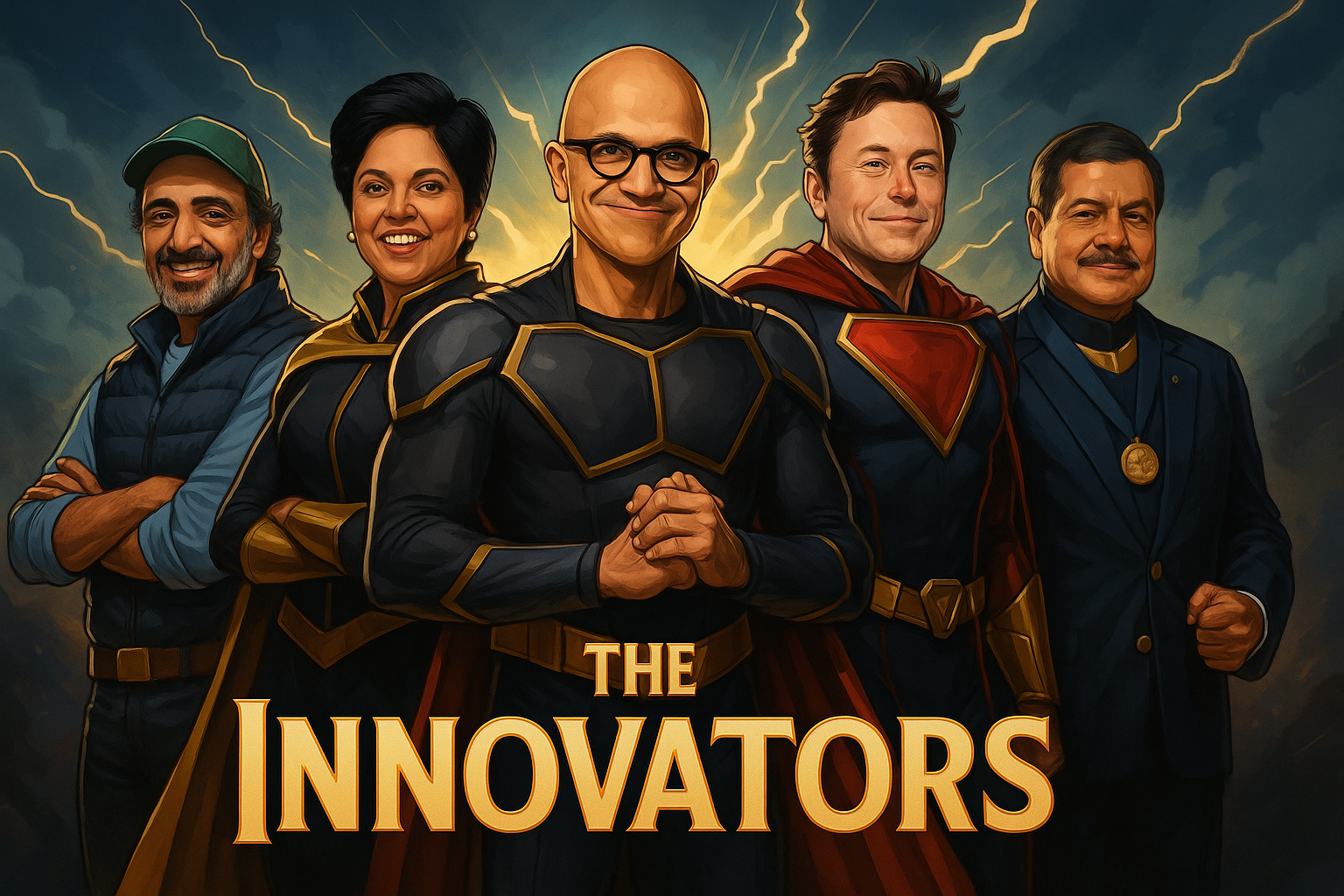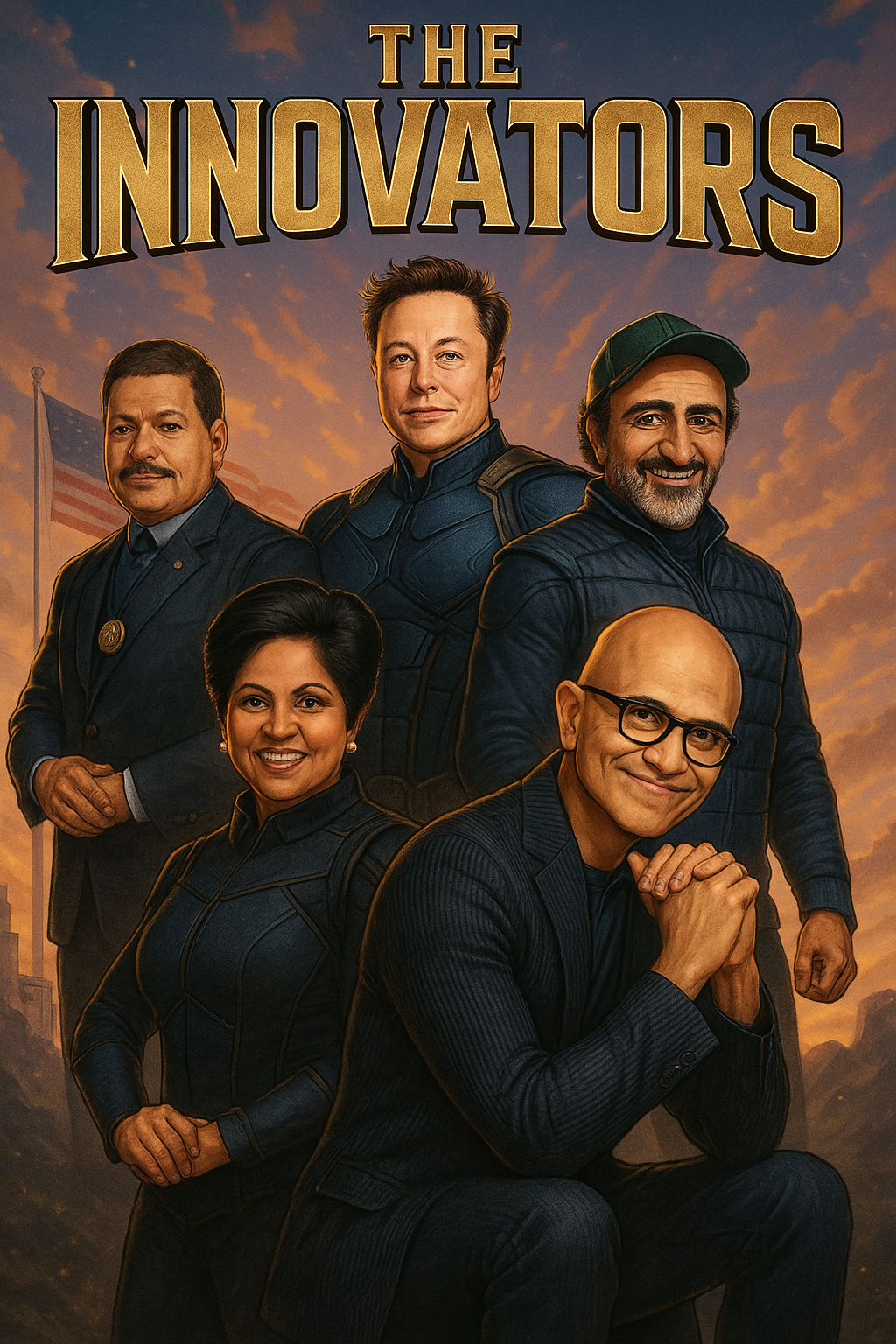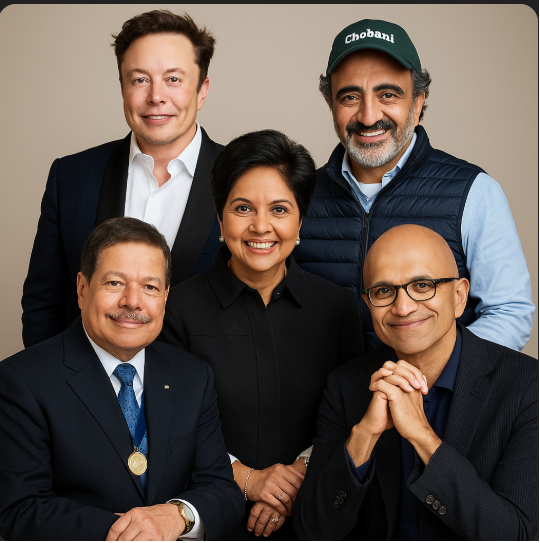Beyond Borders: 5 International Students Who Helped Build America’s Future
Every year, hundreds of thousands of young people step off planes in the United States with a suitcase, a student visa, and a dream. For most, the goal is to earn a degree and return home with new skills. But for some, their time in U.S. classrooms becomes the launchpad for innovations, companies, and discoveries that reshape the world. From the high-tech labs of Silicon Valley to the boardrooms of Fortune 500 companies, international students have played a pivotal role in America’s growth. This isn’t just about personal success stories, it’s about how the U.S. benefits from opening its doors to talent from every corner of the globe. The lives of Elon Musk, Satya Nadella, Indra Nooyi, Hamdi Ulukaya, and Ahmed Zewail show just how powerful that investment can be.
Studying in a foreign country means more than tackling assignments in a second language. It means navigating visa rules, finding affordable housing, and learning to thrive in an entirely new culture. For these five individuals, those challenges were the foundation for something greater: billion-dollar companies, scientific breakthroughs, and leadership roles that influenced entire industries. While their paths were different, one thing unites them each used their U.S. education as a springboard to create lasting value for America and the world.
Elon Musk — Before becoming one of the world’s most talked-about entrepreneurs, Elon Musk was an international student navigating dorm life in Philadelphia. Born in Pretoria, South Africa, Musk first attended Queen’s University in Canada before transferring to the University of Pennsylvania. He earned dual degrees in economics and physics, disciplines that would later underpin his ambitious ventures. In 1999, he co-founded X.com, which evolved into PayPal, revolutionizing online payments. Musk’s Tesla Motors transformed the electric vehicle market in 2023 alone, Tesla accounted for nearly 60% of all EV sales in the U.S. Meanwhile, SpaceX, his aerospace company, became the first private firm to send astronauts to the International Space Station, cutting launch costs by up to 90% compared to traditional methods. His influence extends into AI, solar energy, and infrastructure, making him one of the most significant drivers of U.S. technological competitiveness in the 21st century.
Satya Nadella — Satya Nadella’s journey from Hyderabad, India, to the helm of Microsoft is a testament to quiet leadership and strategic vision. After earning his engineering degree in India, Nadella came to the U.S. to pursue a master’s in computer science at the University of Wisconsin–Milwaukee. He later earned an MBA from the University of Chicago. When he became Microsoft’s CEO in 2014, the company was struggling to adapt to the mobile era. Under his leadership, Microsoft embraced cloud computing with its Azure platform, which grew into the second-largest cloud service provider in the world. This shift not only revitalized Microsoft’s revenue topping $211 billion in 2023 but also solidified the U.S.’s leadership in the global tech industry. Nadella is also known for fostering a culture of empathy and collaboration, transforming the company’s internal dynamics.
Indra Nooyi — Indra Nooyi grew up in Chennai, India, and moved to the U.S. to earn a master’s degree in Public and Private Management from Yale. When she became CEO of PepsiCo in 2006, she was one of only 11 women leading a Fortune 500 company. During her 12-year tenure, PepsiCo’s revenue grew by more than 80%, reaching $63.5 billion by the time she stepped down. She championed a “Performance with Purpose” agenda, pushing the company to diversify its product lines to include healthier options and invest in sustainable packaging. Nooyi’s leadership not only expanded PepsiCo’s global footprint but also reinforced the idea that companies could balance profitability with social responsibility — a concept now central to modern corporate strategy in America.
Hamdi Ulukaya — In 1994, Hamdi Ulukaya left his family’s dairy farm in eastern Turkey to study English at Adelphi University. He later transferred to SUNY Albany to study business. What he didn’t know then was that his background in dairy would make him one of America’s most successful food entrepreneurs. In 2005, he bought a defunct yogurt plant in upstate New York with the help of a Small Business Administration loan. Two years later, Chobani yogurt hit grocery store shelves, sparking the Greek yogurt boom. By 2012, Chobani was the best-selling yogurt brand in the U.S., with over $1 billion in annual sales. Ulukaya is equally known for his philanthropy, having pledged to give employees 10% ownership of the company and hiring hundreds of refugees, demonstrating how international students can fuel both economic growth and social progress.
Ahmed Zewail — Born in Damanhur, Egypt, Ahmed Zewail came to the U.S. for his PhD in chemistry at the University of Pennsylvania. After joining the faculty at Caltech, he pioneered femtochemistry a field that studies chemical reactions at the femtosecond scale (one quadrillionth of a second). In 1999, Zewail became the first Egyptian to win a Nobel Prize in science, earning the Chemistry prize for his groundbreaking work. His discoveries had far-reaching implications, from understanding molecular processes in biology to advancing materials science. Zewail’s research helped maintain America’s edge in scientific innovation and inspired countless international students to pursue advanced research in the U.S.
These five individuals have collectively generated billions in economic value, created tens of thousands of jobs, and advanced the U.S.’s leadership in science, technology, and business. They demonstrate that the benefits of welcoming international students go far beyond tuition dollars. According to NAFSA: Association of International Educators, international students contributed over $50 billion to the U.S. economy in 2023–2024, supporting nearly 378,000 jobs. More importantly, they bring ideas, networks, and perspectives that help the U.S. stay competitive in a globalized world.
The U.S. has always thrived by attracting ambitious minds from abroad, and these five stories are proof of what’s possible when talent is given room to grow. From rockets to yogurt cups, from billion-dollar boardrooms to Nobel Prize labs, the legacy of international students is woven into the fabric of American progress. Every incoming flight carrying a student’s suitcase might also be carrying the next great inventor, CEO, or scientist who will help build America’s future a future that is, by its very nature, beyond borders.


